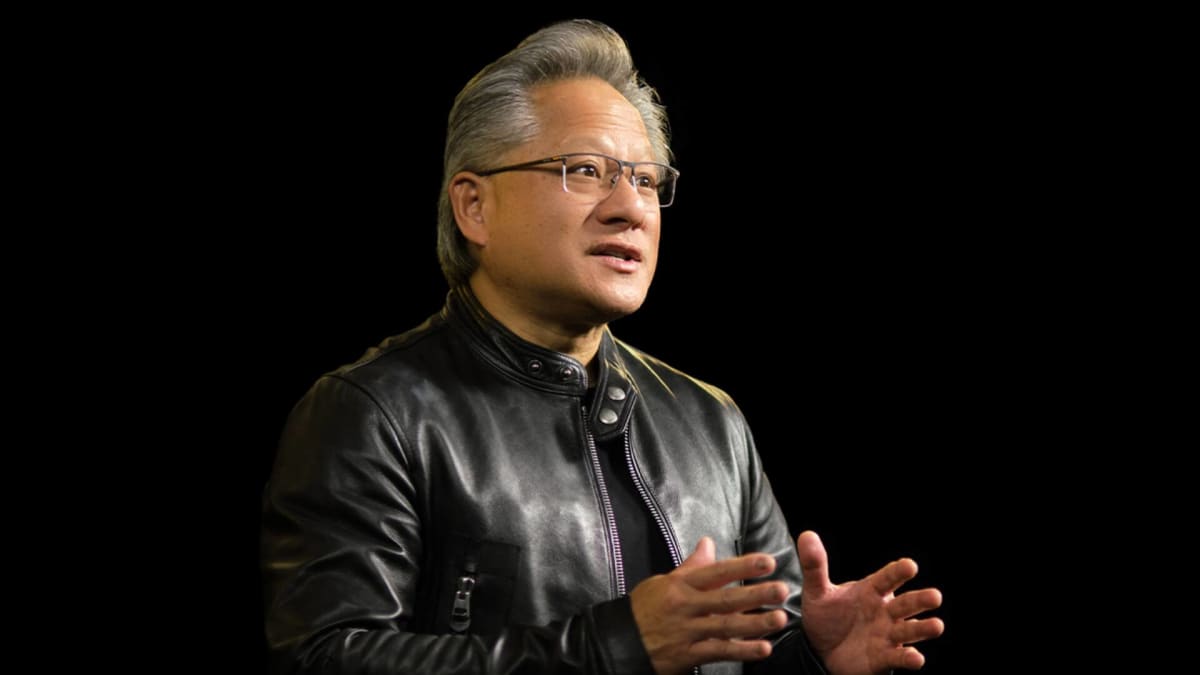
Nvidia CEO Jensen Huang said he is confident that Taiwan's companies can supply enough chips for the company to manufacture computing systems for artificial intelligence, including its next generation of products.
Huang said on Thursday in Taiwan that it feels "perfectly safe" for companies in Taiwan such as Taiwan Semiconductor Manufacturing Co (TSM) to manufacture the chips that are designed by Nvidia (NVDA).
DON'T MISS: Nvidia's CEO Has an Urgent Warning for Anyone Resisting AI
Taiwan has faced growing military threats by China and is home to several key chip makers. They include TSMC, which supplies the majority of chips used in everything from smartphones to appliances to automobiles. TSMC manufactures at least 60% of the global supply of semiconductor chips.
TSMC is a company that exhibits "immense capacity and incredible agility," he said. Huang had dinner with Morris Chang, the founder of TSMC, during his current trip in Taiwan.
"I have every confidence that the demand placed on us, which is extremely high, will be served and will be served soon," said Huang, co-founder of Nvidia who was born in Taiwan.
Nvidia's Next Gen Products Made By TSMC
TSMC manufactures 90% of advanced semiconductor chips and is diversifying its production plants, including constructing a new one in Japan for $7.4 billion to manufacture higher end chips, according to several media reports.
Diversification of the supply chain is critical to the future of Nvidia, Huang said.
"The process of diversifying in different geographies is an excellent strategy by TSMC and so TSMC is now part of Nvidia's diversity and redundancy strategy," he said.
Nvidia will also use chips made by TSMC at its Arizona plant, Huang said so that the company will "have a lot of diversity and resilience designed into our supply chain."
Receive full access to real-time market analysis along with stock, commodities, and options trading recommendations. Sign up for Real Money Pro now.
Huang plans to speak with executives not only from TSMC on June 2 but also Foxconn, which is a major supplier for Apple and produces iPhones among other electronics that need AI chips
He said he was not sure if he would also visit China itself. Mainland China has ramped up its military presence in recent months. The Beijing government has long claimed Taiwan and has been vocal in its demands to gain control of the island, which operates under a democratic government.
Huang Commits to TSMC
Nvidia's next group of products will be manufactured by TSMC, said Huang, who is not concerned about relying on Taiwan despite its political tensions.
"When I was here, in all of our supply chain discussions, we feel perfectly safe," Huang said to reporters at a technology event in Taipei.
Nvidia began making chips for PC graphics and later moved onto the gaming industry. In 1999, the company invented the GPU or video card.
Share of Nvidia surged rapidly following a demand for the company's AI-focused semiconductors powered a fiscal first quarter earnings beat and a robust near-term outlook.
The company's market cap touched the $1 trillion mark on May 30 as investors seek to profit from the increased demand in AI.
Nvidia estimates current-quarter revenue of around $11 billion, plus or minus 2%, compared with the Wall Street consensus of $7.15 billion.
"The computer industry is going through two simultaneous transitions — accelerated computing and generative AI,” said Huang previously. "A trillion dollars of installed global data center infrastructure will transition from general purpose to accelerated computing as companies race to apply generative AI into every product, service and business process."
He added that Nvidia is ready to meet the demand.
"Our entire data center family of products — H100, Grace CPU, Grace Hopper Superchip, NVLink, Quantum 400 InfiniBand and BlueField-3 DPU — is in production," Huang said. "We are significantly increasing our supply to meet surging demand for them."
The group achieved dominance in the videogame market with its graphics cards. It is extending its strengths to artificial intelligence, as the use of AI is projected to increase exponentially across many industries.







